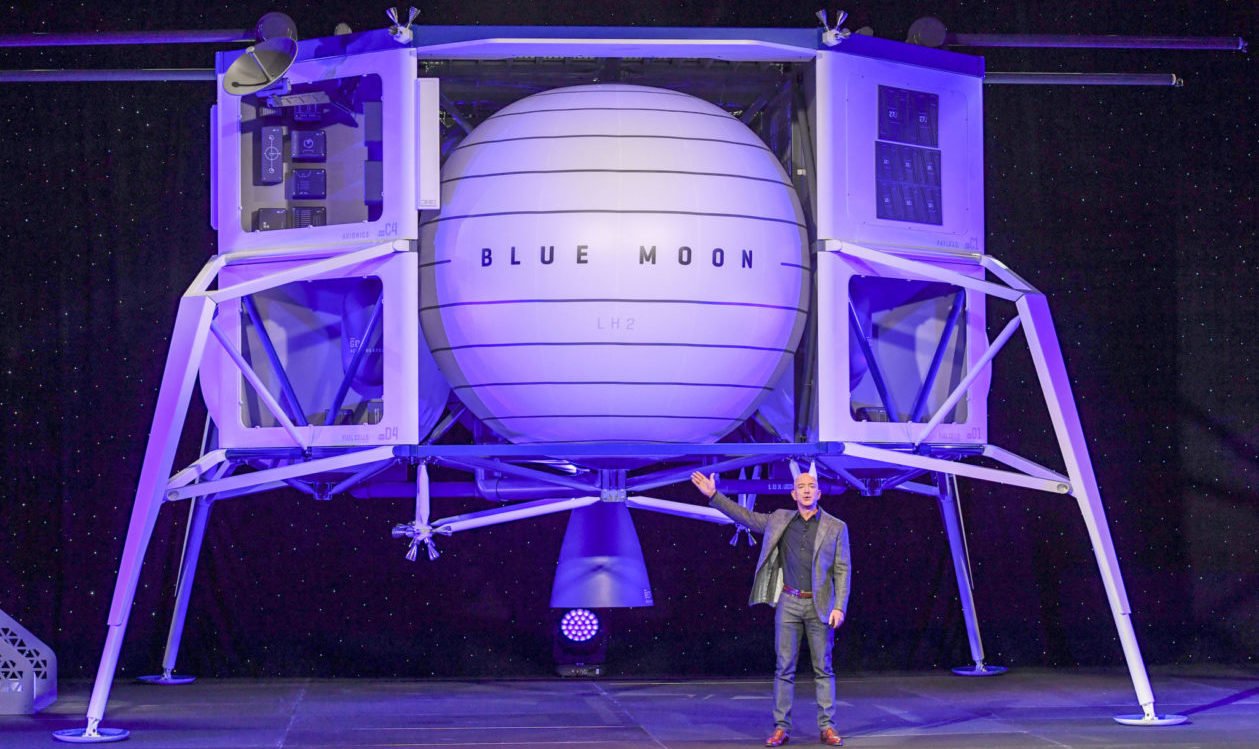On July 16, 2019, Jeff Bezos went on primetime national television to tell the world about his investment thesis in space. The founder of Amazon, who also founded the space company Blue Origin, outlined his ambition to preserve a dying Earth by “using the resources of space” and by moving high-polluting industries like manufacturing to other planets. For a change, the rest of us got a window into what he wants rather than the other way around.
But what Bezos wants is a bit troubling. While he is no doubt well-intentioned, isn’t that precisely the kind of thinking that got us into this whole mess of planetary degradation in the first place? After all, the zero-sum strategies of exporting problems to distant lands and extracting resources from them are as old as the history of imperialism. Are we sure we want to lurch forward into the age of interplanetary imperialism as the latest frontier of the same old story?

Before we mount our high horses, however, let’s also consider our own everyday complicity in that story. In the illusory emotional safety of morning coffees and pajamas, our keystrokes extract natural resources from anonymous mines in other continents to deliver disposable goods that become permanent trash shipped to anywhere but our backyard. Digital imperialism starts at our fingertips.
Not surprisingly, people don’t generally think of themselves as imperialists. We reserve the word to characterize the behavior of others even though we are each other’s other. In that sense, even our protestations reek of moral imperialism: Extract the credit and dump the blame. Yet, seen from a higher plane, we—all of us—are in some ways part of the problem, and only by accepting collective responsibility do we stand a chance of not destroying our lands, oceans and skies. The us-versus-them instinct is alive and unwell in all of us. None of us are above it all.
Our collective self-blindness to this heads-we-win-tails-you-lose thinking has been no small oversight. The expanding concentric circles of imperialism have hit their planetary limits, and now we can see its accumulated consequences: pollution, consumerism and the dystopian desperations. Growing by extracting resources from others is the self-defeating algorithm of cancer that eventually kills the host.

Looking back, once humans shifted from highly genetically aligned social hives to lowly aligned ones, leaders began ruling over the people rather than on behalf of them. Such systems are inherently ravenous for power, to be disbursed for the purposes of maintaining internal loyalty. When unchecked, these self-serving systems turn into self-expanding beasts that feed themselves through external conquests, crusades and imperialism.
This has led to today’s endless array of imperialistic gambits, fueled by a “grow-or-die” mentality—reflecting what mathematician and economist Eric Weinstein calls “embedded growth obligations.” Robbing Mars to pay Earth is a not-so-heavenly version of the Ponzi scheme of imperialism. In trying to solve Earthly pollution by polluting other planets, we are merely perpetuating the same problem.
As if that weren’t ungracious enough, today we find ourselves also extracting resources from future generations, the voiceless stakeholders upon whom we are dumping federal deficits, pension Ponzi schemes and other unfunded liabilities: all part of our intertemporal imperialism. It shouldn’t take an Einstein to see that the relentless forces of imperialism are spreading across space and time.
The world needs a better narrative than human colonization of other planets for the purposes of dumping our poor behaviors there or setting up a new habitat to escape a planet that we have destroyed (Elon Musk’s vision). Both of these defeatist ideologies will virtually ensure that we fail to find the solutions to our civilization’s fallibilities before metastasizing these same cancerous behaviors to distant planets.
The principles of inclusive stakeholding, on the other hand, offers a way out of this mess without leaving the planet. Inclusive stakeholding is the granting of vested stakes to all stakeholders affected by our actions, especially those that don’t have a voice, such as the disadvantaged, the environment and future children. Whereas current practices of exclusive stakeholding produce externalities such as pollution, embracing inclusive stakeholding internalizes such externalities.
That one small step today would be a giant leap forward for a more sustainable future.
Joon Yun is a principal of the Yun Family Foundation.







